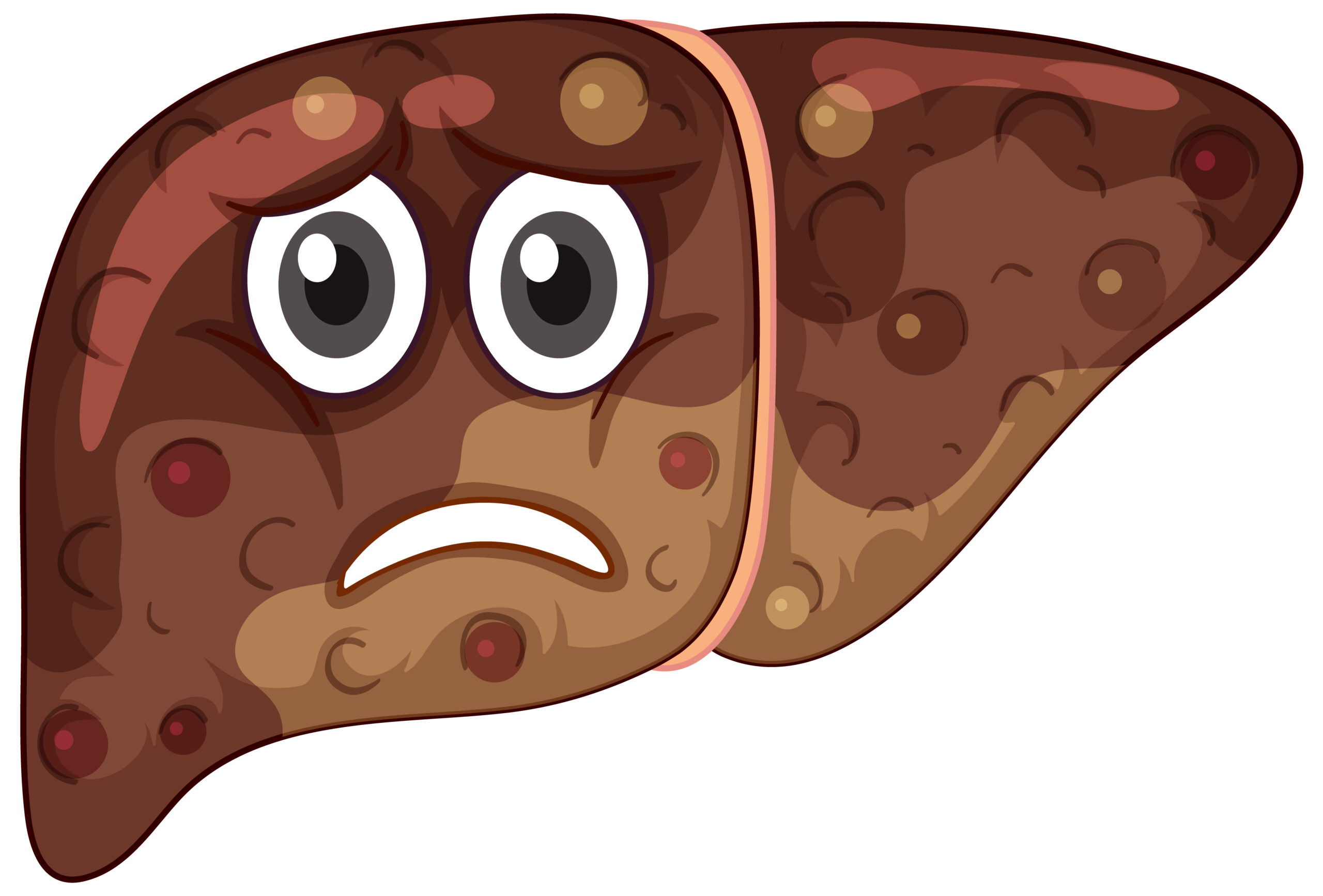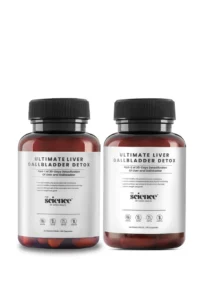Is an enlarged liver dangerous? Yes, it can be a sign of serious underlying health conditions. While some cases are mild and temporary, others can progress to liver failure, cirrhosis, or even cancer if ignored. Understanding this condition early can save your health and prevent complications.
The liver is one of the body’s most vital organs, responsible for detoxifying blood, breaking down food, storing energy, and producing essential proteins. When the liver becomes enlarged, a condition known as hepatomegaly, it signals that something is wrong inside the body. This enlargement is not a disease in itself but a symptom of another issue.
In this article, we will explore what an enlarged liver means, answer the question is an enlarged liver dangerous, discuss common causes, symptoms, diagnosis, treatment options, and prevention strategies. You will also find answers to the most frequently asked questions about this condition.
What Does It Mean to Have an Enlarged Liver?
A healthy liver is about the size of a football and usually weighs between 1.2 and 1.5 kilograms in adults. It sits under the right rib cage and works silently to keep the body functioning properly.
When the liver becomes enlarged, or hepatomegaly, it usually indicates inflammation, fat buildup, or damage to liver cells. This can happen temporarily during infections, or it may become a chronic condition linked to lifestyle, alcohol use, or long-term diseases.
Understanding the difference between short-term enlargement and chronic enlargement is important. Short-term swelling may resolve with rest or medication, but chronic hepatomegaly often requires lifestyle changes, ongoing treatment, or even surgery. So when asking is an enlarged liver dangerous, the answer depends on what is causing it and how soon it is detected.
Is an Enlarged Liver Dangerous?
The most pressing concern people have is, is an enlarged liver dangerous in the long run? The reality is that it can be.
- In mild cases, the liver may be enlarged due to infections or temporary inflammation, which can heal completely with treatment.
- If the enlargement is caused by fatty liver disease, alcohol misuse, or hepatitis, the risk increases. Long-term damage can cause scarring of the liver (cirrhosis).
- In advanced cases, untreated hepatomegaly may progress to liver failure or liver cancer, both of which can be life-threatening.
The danger lies in ignoring the symptoms. Since the liver has the ability to keep functioning even when damaged, many people do not realize how serious the problem is until it has advanced. This is why doctors emphasize early detection. To answer the question clearly: yes, an enlarged liver is dangerous if neglected, but manageable if addressed on time.
Causes of Liver Enlargement
Several health conditions may cause hepatomegaly. Some of the most common causes include:
- Non-alcoholic fatty liver disease (NAFLD): Excess fat builds up in the liver, usually linked to obesity and poor diet.
- Alcohol-related liver disease: Heavy alcohol use damages liver cells and causes swelling.
- Viral hepatitis (A, B, C): Infections cause inflammation and enlargement.
- Genetic disorders: Conditions like Wilson’s disease and Hemochromatosis affect how the liver processes copper or iron.
- Heart failure: Increases pressure in blood vessels connected to the liver, leading to swelling.
- Cancer and infections: Tumors or bacterial infections may enlarge the liver.
When wondering is an enlarged liver dangerous, it is important to remember that the underlying cause determines how serious it can become. For example, a viral infection may resolve, but untreated fatty liver disease can quietly progress to cirrhosis.
Risk Factors That Make an Enlarged Liver Worse
Certain risk factors increase the likelihood of liver enlargement or worsen an existing condition:
- Obesity and a diet high in processed or fatty foods
- Excessive and long-term alcohol consumption
- Type 2 diabetes and insulin resistance
- Family history of liver disease
- Prolonged use of medications that strain the liver
- Exposure to harmful toxins or chemicals
These factors can accelerate liver damage and make hepatomegaly more dangerous. People with these risks should not ignore symptoms and should undergo regular check-ups to avoid asking too late, is an enlarged liver dangerous for me?
Symptoms of an Enlarged Liver
One of the challenges of this condition is that many people do not feel symptoms in the early stages. This leads them to delay medical attention.
Early warning signs include:
- Persistent fatigue or weakness
- A feeling of fullness in the abdomen
- Dull pain or heaviness under the right rib cage
Advanced symptoms may include:
- Yellowing of skin and eyes (jaundice)
- Unexplained weight loss
- Swelling in the abdomen or legs
- Confusion or difficulty concentrating
Many people ask, is an enlarged liver dangerous if I don’t feel anything? The answer is yes, because damage may silently progress even without symptoms. This makes regular check-ups essential.
When to See a Doctor
You should seek medical advice if you notice any of the following:
- Ongoing pain or discomfort in the upper right abdomen
- Yellowing of eyes or skin
- Persistent fatigue
- Unexplained weight loss
- Swelling in legs or stomach
People with high risk factors such as obesity, diabetes, or a history of alcohol use should not wait for severe symptoms to appear. They should get routine liver tests done to catch problems early.
Diagnosis of an Enlarged Liver
To diagnose hepatomegaly, doctors may recommend:
- Physical examination: Feeling the abdomen to detect swelling.
- Blood tests: Liver function tests, hepatitis panel, cholesterol levels.
- Imaging scans: Ultrasound, CT, or MRI to see the size and texture of the liver.
- Liver biopsy: In unclear or severe cases, a sample is taken for detailed study.
A timely diagnosis helps determine whether is an enlarged liver dangerous in your case and what treatment plan should follow.
Treatment Options for an Enlarged Liver
Treatment depends on the cause, but may include:
- Lifestyle changes: A balanced diet, exercise, and weight loss can reverse fatty liver.
- Complete alcohol cessation: For alcohol-related disease, stopping alcohol is crucial.
- Medications: Antivirals for hepatitis, and medicines to control cholesterol, diabetes, or infections.
- Managing health conditions: Proper treatment of diabetes, heart problems, and high blood pressure.
- Surgery or transplant: In severe cases with cirrhosis or liver failure, advanced interventions may be needed.
When addressed properly, the risks lessen, and the answer to is an enlarged liver dangerous becomes less frightening.
Prevention and Long-Term Liver Care
Preventing hepatomegaly is easier than treating it later. Steps you can take include:
- Avoid or limit alcohol consumption
- Maintain a healthy body weight through regular exercise
- Eat a diet rich in fruits, vegetables, lean proteins, and whole grains
- Avoid processed foods, excess sugar, and unhealthy fats
- Get vaccinated against hepatitis A and B
- Go for routine health check-ups, especially if you are at risk
By adopting these habits, you can protect your liver and avoid asking in the future, is an enlarged liver dangerous for my health.
Take Charge of Your Liver Health Today
Your liver works tirelessly every single day to keep your body healthy, but when it becomes enlarged, it is sending you an urgent signal. If you have been feeling tired, experiencing digestive discomfort, or dealing with metabolic issues, do not ignore these signs. The question is an enlarged liver dangerous becomes even more important when you delay action.
Smriti Kochar’s Ultra-Wellness Program is designed to address the root causes of conditions like fatty liver, metabolic imbalances, and chronic lifestyle-related illnesses. This program offers a 100% natural and personalized plan to help you heal without relying on medicines.
Take the first step toward restoring your health, energy, and balance. In just 4–6 months, you can transform your well-being and protect your liver for life.
Start your healing journey with Smriti Kochar here
Conclusion
So, is an enlarged liver dangerous? The answer is yes, especially when ignored. It may start as a silent condition with mild swelling, but if left untreated, it can progress to cirrhosis, liver failure, or even cancer.
The good news is that with early detection, lifestyle changes, and medical care, an enlarged liver can often be reversed or controlled. Your liver is your body’s powerhouse, and protecting it means protecting your overall health.
Read Our Latest Blogs
How To Clean Liver Naturally | Is Grade 2 Fatty Liver Dangerous | How To Detox Liver Naturally At Home | Is Eggs Good For Fatty Liver | What Is Grade 1 Fatty Liver | What Is Sgpt In Liver | Is Curd Good For Fatty Liver | Is Milk Good For Fatty Liver | Is Sugarcane Juice Good For Liver | Is Beer Good For Liver | Is Coconut Water Good For Liver
Frequently Asked Questions
Ans: Yes, in many cases. If the enlargement is due to fatty liver or early inflammation, lifestyle changes and treatment can restore the liver to normal size.
Ans: Healing time depends on the cause. Fatty liver may improve within a few months, but damage from alcohol or hepatitis may take longer and need ongoing care.
Ans: Fried foods, refined sugar, processed snacks, red meat, and alcohol should be avoided as they worsen liver damage.
Ans: Yes, it can be. In children, hepatomegaly may signal genetic or metabolic conditions and requires immediate medical attention.
Ans: Yes, regular exercise helps reduce fat buildup in the liver and improves overall liver function.
Ans: No, fatty liver is one cause of an enlarged liver. Hepatomegaly can also result from hepatitis, heart conditions, or genetic disorders.
Ans: You cannot confirm hepatomegaly at home. Only medical tests such as ultrasound or blood work can provide an accurate diagnosis.
Ans: Yes, ignoring it may lead to cirrhosis, liver failure, or cancer. Early treatment makes a huge difference.





